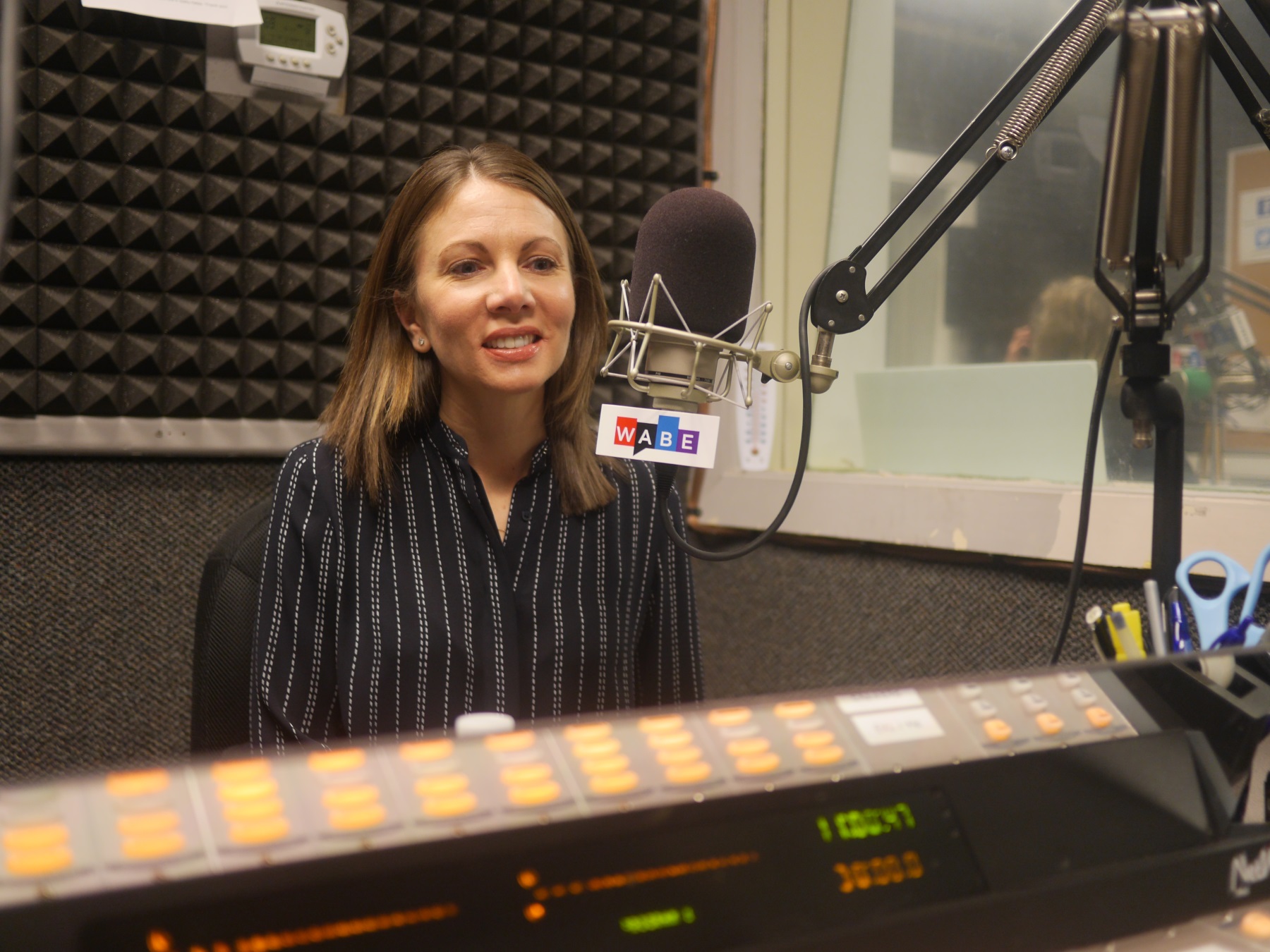In the lead-up to the May 22 primary elections, “Morning Edition” will feature conversations with the major party candidates for governor of Georgia. Democrat Stacey Evans joined Denis O’Hayer on March 23.
Evans is a former state representative from Cobb County, first elected in 2010. She is an attorney who has done much of her work in business litigation.
Listen to the broadcast length interview above or the full length version below.
Get more information about Georgia’s candidates for governor >>
On how she’ll pay for campaign priorities like job training, restoring HOPE Scholarship funding and infrastructure
We are not looking to raise any taxes. I don’t think that’s necessary. I think that we have to focus on the government doing its job. And government has a role to invest in our infrastructure, which includes transportation and health care. So, when we make our investment then there’s a return on that investment. It’s not an expense.
On finding money in the budget for initiatives like transit and infrastructure
The money that we’re looking at every year in the budget is typically the new money. There’s a lot that’s been allocated that is not necessarily the most efficient use of our money at this time. And we’ve got to go and make sure that we’re doing a review and that every dollar counts.
On whether the governor should lead a push for public transit
The state has to be a leader. It’s not an option to continue the piecemeal process that we’ve had. It’s not working for metro Atlanta commuters. The governor is going to have a big role in this process.
On what local governments should be required to pay for transit and how to account for past investment by Fulton and DeKalb counties
We’re not going to do anything to cause anybody to pay more than their fair share of what we’re talking about. It will be a very fair process and everybody will be at the table, that I can promise. The upfront investment that the taxpayers of Fulton and DeKalb have made should very much be taken into account. They’ve not sat on the sidelines, and I think that a lot of the growth in the metro area has been because of their willingness to make this investment.
On regretting her vote for the Opportunity School District plan
What I regret is that I didn’t fully appreciate how much distrust there was between the education community and the state government. There were parents in my district who didn’t feel like they were getting the attention from the school board for their schools. This would be a way, they thought, to get the attention of all school board members to improve those schools, and I couldn’t disagree with that.
On funding her plan for smaller class sizes
We are going to write a [school] funding formula that takes into account the needs of our children, and we’re going to figure out what is that magic dollar figure, and we’re going to stick to it. We’re not going to allow the state budget not to include every dollar that we have determined is necessary for every child in this state to get a quality education. It’s just simply not an option not to fund a formula when we decide that number what we want the class sizes to be to allow every child to thrive.
On how much it would cost to expand Medicaid in Georgia
I think there’s been an estimate of $2.5 billion over 10 years. So that’s about $250 million a year. We have about 500,000 Georgians that would benefit immediately and would be covered if we were to expand Medicaid. So, it’s not just an issue of allowing folks to have access to health care, which is fundamental, but also it’s a job creator for these communities.
On how to handle Medicaid expansion in the face of the Affordable Care Act’s uncertain future
I don’t think that what could happen is something that we should let stop us from taking advantage of a program that could help Georgians immediately. I feel confident that this program will remain in the long term.
On whether her call for decriminalizing small amounts of marijuana is politically realistic
I think it is. Giving credit where credit is due, Gov. Deal has made Georgia a leader in criminal justice reform, and I think that’s a great starting point for going further and building on that success. I think decriminalizing marijuana is a good starting place.
On whether she could have fought harder to stop the 2011 changes to the HOPE Scholarship program
I don’t know that I could have pushed any harder. As a freshman member of the Legislature against those cuts, which were disastrous. I owe my whole life to that HOPE scholarship because I never would have been able to afford to go to college without it. So, I fought as hard as I could. I supported a proposal that would have implemented a $140,000 income cap on the HOPE Scholarship program.
On what efforts of Gov. Nathan Deal’s she’d preserve and change
I think Gov. Deal has done a great job of making us a leader in criminal justice reform, which we’ve talked about. I want to expand upon some of that. I would immediately work to expand Medicaid, which is something that he’s refused to do, and we will be making substantial changes to the HOPE Scholarship program, which is another place where I think he is falling short.
Listen to the full interview below









